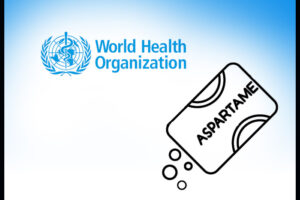WHO Classifies Aspartame As "Possibly Carcinogenic To Humans"

Two groups affiliated with the World Health Organization or WHO announced on Friday that aspartame, a widely used sweetener, is a “possible carcinogen.”
However, they emphasized that it remains safe to consume at the agreed-upon levels. The rulings come from two separate expert panels—one assessing potential hazards and the other evaluating real-life risks.
Aspartame is a popular sweetener found in various products, including Coca-Cola diet sodas and Mars’ Extra chewing gum. During a press conference prior to the announcement, Francesco Branca, the WHO’s head of nutrition, suggested that consumers should consider choosing neither aspartame nor sugar-sweetened beverages but opt for water instead.
The International Agency for Research on Cancer (IARC), based in Lyon, France, declared aspartame a “possible carcinogen” in its initial statement. This classification indicates that there is limited evidence suggesting that a substance can cause cancer. However, it does not consider the amount of consumption required to pose a risk, which is evaluated separately by the WHO and Food and Agriculture Organization Joint Committee on Food Additives (JECFA), based in Geneva.
After conducting a comprehensive review, JECFA stated that it did not find convincing evidence of harm caused by aspartame. Consequently, it continues to recommend that individuals keep their consumption levels of aspartame below 40mg/kg per day. JECFA first established this threshold in 1981, and regulatory authorities worldwide have provided similar guidance to their populations.
Several scientists not involved in the reviews argue that the evidence linking aspartame to cancer is weak. Associations representing the food and beverage industry view the decisions as confirmation that aspartame is safe and a viable option for individuals seeking to reduce sugar intake in their diets.
The WHO emphasizes that current consumption levels of aspartame indicate that the risk of exceeding the limit is minimal. For instance, an individual weighing 60-70kg would need to consume more than 9-14 cans of soda daily to breach the threshold. This consumption estimate is based on the average aspartame content found in beverages, which is approximately ten times lower than what most people typically consume.
Francesco Branca reaffirmed that the results do not indicate that occasional consumption poses a risk for the majority of consumers. However, concerns remain about the possible link between aspartame and hepatocellular carcinoma, a type of liver cancer. The IARC panel based its classification on three studies conducted in the United States and Europe, which indicated a potential connection between the consumption of sweeteners and this form of cancer. However, controversial animal studies and limited evidence linking aspartame’s chemical properties to cancer were also considered.
Experts unrelated to the WHO reviews argue that the evidence supporting a causal relationship between aspartame and cancer is tenuous. They explain that the Group 2B classification, used by the IARC, is highly conservative, as it includes substances for which there is any flawed evidence of carcinogenicity. JECFA, on the other hand, has concluded that there is no “convincing evidence” of harm caused by aspartame.
In response to the WHO’s classification, some doctors expressed concern that labeling aspartame a “possible carcinogen” might prompt consumers of diet soda to switch to caloric sugar beverages. However, medical professionals highlight that the risks associated with weight gain and obesity outweigh any potential risks posed by aspartame.
Industry representatives maintain that the WHO’s conclusion reaffirms the safety of aspartame. They argue that, when used as part of a balanced diet, low-calorie or no-calorie sweeteners, including aspartame, offer consumers a choice to reduce sugar intake—a critical objective for public health.
Source: Read Full Article
